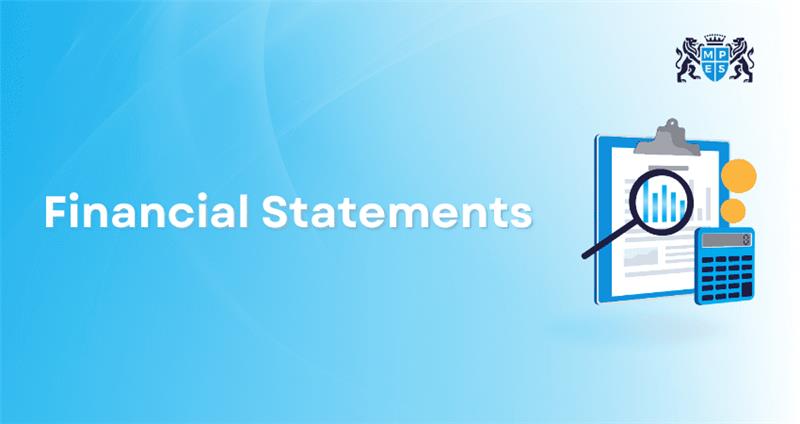Learning Options
- Online Video-Based Learning
- Flexible Schedule
- Expert Trainers with Industry Experience
- High Pass Rates
- 24/7 Personalised Support
- Interactive Learning Materials
Overview
This Certified EU General Data Protection Regulation (EU GDPR) Foundation and Practitioner course is essential for organisations to ensure compliance with GDPR regulations. As data protection laws continue to evolve, this course helps learners understand the core principles and practicalities of GDPR, allowing them to implement effective data protection strategies and mitigate risks.
The course is ideal for professionals in data protection, compliance, legal, or IT roles. By completing this course, learners will gain expertise in GDPR implementation and compliance, positioning themselves as valuable assets within their organisations, and enhancing their career prospects in data protection and regulatory compliance fields.
This course provided by MPES is designed for professionals looking to deepen their understanding of GDPR. With a practical approach, it covers both foundational and advanced concepts, ensuring learners can immediately apply their knowledge to real-world scenarios. This certification demonstrates competence in GDPR compliance, giving learners a competitive edge in the ever-growing data protection landscape.
Course Objectives
- Understand the principles of data protection under GDPR
- Learn how to apply GDPR in practice
- Identify key obligations for data controllers and processors
- Assess and manage GDPR risks and compliance
- Gain insights into data protection impact assessments
- Understand the role of Data Protection Officers (DPO)
- Be able to manage data breaches and response protocols
Learners will be equipped with the skills and knowledge to implement GDPR compliance strategies effectively, ensuring data protection and regulatory adherence within their organisation. They will also be prepared to lead GDPR-related projects and contribute to ongoing compliance efforts, safeguarding personal data and mitigating risks.

Average completion time
4 Month
with unlimited support
100% online
Start anytime
Study At Your Own PaceCourse Includes
Course Details
Develop your understanding of essential financial, business and management accounting techniques with ACCA Applied Knowledge. You'll learn basic business and management principles and the skills required of an accountant working in business.
Entry Requirements
- Educational Background: There are no specific educational requirements for this course.
- Language Proficiency: Learners should have a good command of English, as all course materials, assessments, and discussions are conducted in English.
- Interest in EU GDPR: This course is ideal for individuals with a keen interest in learning EU’s data protection law - GDPR
MPES Support That Helps You Succeed
At MPES, we offer comprehensive support to help you succeed in your studies. With expert guidance and valuable resources, we help you stay on track throughout your course.
- MPES Learning offers dedicated support to help you succeed in Accounting and Finance courses.
- Get expert guidance from tutors available online to assist with your studies.
- Check your eligibility for exemptions with the relevant professional body before starting.
- Our supportive team is here to offer study advice and support throughout your course.
- Access a range of materials to help enhance your learning experience. These resources include practice exercises and additional reading to support your progress.
Career Growth Stories
Discover how MPES Learning transforms careers with real success stories.

Aaron Allcote

As a finance officer, MPES has been a huge help in understanding the process of recording and processing transactions from all different perspectives. The courses are very easy to follow, and the training they provide can be applied to real-life scenarios. The courses have been a huge help for me, and I would highly recommend them.
Aaron Allcote
Bob Beaumont

I completed all of my ACA studies with MPES and I think you would struggle to find a better training provider anywhere in the British Isles. MPES' tutors are excellent both at delivering training and giving individualised feedback and coaching. the supporting materials and the out of class support are also great.
Bob Beaumont
Arvy Pasanting

As a qualified accountant, studying with MPES has been very rewarding experience. Its team of passionate and dedicated mentors gave me the confidence and knowledge I needed to not just at excel in my current role as an auditor, but also inspired me to expand my horizons.
Arvy Pasanting
David Ford

I was recommended MPES after searching for a way to pursue a career in the accounting profession, I have studied with them throughout my journey utilising online learning opportunities that fit around the needs of my employer.
David Ford
Aaron Allcote

As a finance officer, MPES has been a huge help in understanding the process of recording and processing transactions from all different perspectives. The courses are very easy to follow, and the training they provide can be applied to real-life scenarios. The courses have been a huge help for me, and I would highly recommend them.
Aaron Allcote
Bob Beaumont

I completed all of my ACA studies with MPES and I think you would struggle to find a better training provider anywhere in the British Isles. MPES' tutors are excellent both at delivering training and giving individualised feedback and coaching. the supporting materials and the out of class support are also great.
Bob Beaumont
Arvy Pasanting

As a qualified accountant, studying with MPES has been very rewarding experience. Its team of passionate and dedicated mentors gave me the confidence and knowledge I needed to not just at excel in my current role as an auditor, but also inspired me to expand my horizons.
Arvy Pasanting
David Ford

I was recommended MPES after searching for a way to pursue a career in the accounting profession, I have studied with them throughout my journey utilising online learning opportunities that fit around the needs of my employer.
David FordHave Questions? We’ve Got You
If you have any questions, we’re here to help. Find the answers you need in the MPES detailed FAQ section.
Q. What will I learn in the Certified EU GDPR Foundation and Practitioner course?
In this course,
you will learn about the key principles of GDPR, its practical application in
compliance, the roles of data controllers and processors, and how to manage
data protection risks. You'll also gain insights into conducting data
protection impact assessments and how to handle data breaches and compliance
challenges effectively within an organisation.
Q. How will this course help me in my career?
Completing this
course will enhance your expertise in data protection, making you an asset in
organisations seeking to ensure GDPR compliance. It will provide you with the
knowledge needed to oversee data protection processes and contribute to
compliance strategies, significantly boosting your career prospects in data
protection and regulatory compliance roles.
Q. Is this course suitable for non-technical professionals?
Yes, this course
is designed for both technical and non-technical professionals. It covers the
foundational principles of GDPR and focuses on practical application, making it
accessible for learners from diverse backgrounds, including legal, compliance,
and managerial roles. It equips you with the skills to implement data
protection measures without requiring advanced technical knowledge.
Q. Can I apply this course’s knowledge directly in my workplace?
Absolutely! The
course provides practical, real-world knowledge that you can immediately apply
to your organisation’s data protection processes. You will be able to assess
data handling practices, ensure GDPR compliance, and help mitigate data risks
within your workplace, all while building a strong compliance framework for
personal data processing.
Q. What is the difference between the Foundation and Practitioner levels of this course?
The Foundation
level introduces the fundamental concepts of GDPR, while the Practitioner level
delves deeper into its practical application, including compliance strategies,
risk management, and handling data breaches. The Practitioner course is ideal
for learners looking to apply advanced knowledge and lead GDPR compliance
initiatives within an organisation.
Related Courses
Explore additional courses designed to complement your learning journey and enhance your professional skills. Expand your knowledge with these expertly curated options tailored to your career goals.



Resources
Access a wide range of free resources to support your learning journey. From blogs to news and podcasts, these valuable guides are available at no cost to help you succeed.

What is Financial Reporting: Types, Importance and Uses Explained
Maria Thompson21-Apr-2025

Asset Disposal: Definition, Types, Methods and Examples Explained
Maria Thompson16-Apr-2025

Allowable and Disallowable Expenses in the UK: Explained in Detail
Maria Thompson09-Apr-2025

What is Human Resource Management (HRM)? Principles and Functions
Maria Thompson08-Apr-2025

Navigating Career Transitions with the 10 Steps Framework Guide
Maria Thompson28-Mar-2025

Top 15 IT Soft Skills Every Tech Professional Should Have in 2025
Maria Thompson05-Mar-2025

Trade Payables: Definition, Benefits, Tips, and Examples for Business
Maria Thompson03-Mar-2025

What is Goodwill in Accounting? Importance, Types, and Examples
Maria Thompson11-Feb-2025

Audit vs. Assurance: Definitions, Key Differences & Similarities
Maria Thompson03-Feb-2025

What is DeepSeek R1 Model, and How it Ranks Against OpenAI's o1?
Maria Thompson31-Jan-2025

What Is Cash Basis Accounting? Definition, Example and New Updates
Maria Thompson29-Jan-2025

Corporate Tax Planning: Definition, Types, Strategies, and Benefits
Maria Thompson27-Jan-2025

The Power of Resilience: Strategies to Develop Your Inner Strength
Maria Thompson23-Jan-2025

Financial Accounting vs Management Accounting: What's the Difference?
Maria Thompson22-Jan-2025

What is Corporation Tax: Deductions, Benefits, and How It Works
Maria Thompson20-Jan-2025

Role of Mentorship in Career Development: A Catalyst for Success
Maria Thompson16-Jan-2025

15 Reasons You Should Invest in Professional Development: Explained
Maria Thompson03-Jan-2025

What is Corporate Governance: Principles, Importance, and Examples
Maria Thompson23-Dec-2024

What Is Management Accounting? Types and Key Functions Explained
Maria Thompson18-Dec-2024

Accounting Secrets to Effective Budgeting: Proven Strategies for Creating Effective Budgets
Maria Thompson16-Dec-2024

Financial Accounting in a Remote Work Era: Adapting Key Practices
Maria Thompson12-Dec-2024

Future-ready Accountants: Top Certifications to Bridge Skills Gaps in 2025
Maria Thompson04-Dec-2024
 Have Any Question?
Have Any Question? info@mpeslearning.com
info@mpeslearning.com  +44 7452 122728
+44 7452 122728






 Back
Back











































